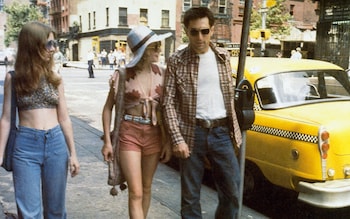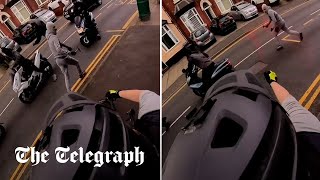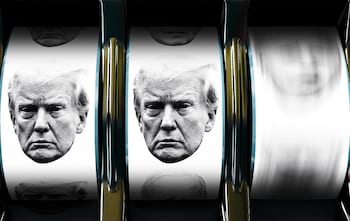
This is part of a series called ‘The secret life of…’, peeling back the curtain on professions you’ve always wanted to know more about. If you want to anonymously reveal all about your job, email money@telegraph.co.uk.
When I was in my late twenties, I became a black cab driver. Almost 40 years later, I’m still a cabbie.
I fell into the job. I needed something that I could do part-time to supplement my income. My thinking was: whatever else I worked on, I could always go back to driving a cab.
It took me 18 months to pass the Knowledge – the test you must pass to become a black cab driver. Over the years, it has become progressively harder. Now it takes about three years to pass the exam.
You have to know every street within six miles of Charing Cross. You have to know what we call points – every building, theatre, pub, club, place of public interest that a passenger may possibly wish to go to.
To learn the Knowledge, you are given what is called the blue book, even though it is pink, with 320 routes in it – we call them runs – which you have to learn. The first and most famous one is Manor House to Gibson Square in Islington. I got on my moped and figured out the route and learnt all the streets that way.
Once you’ve learnt all the runs, you can apply for interviews, which are called appearances, where you sit in front of an examiner and he will ask you to take him from two points – say, from Seven Sisters Station to a theatre on Upper Street in Angel – and you have to reel off the exact route you would take to get him from point A to point B in a straight line.
Nowadays, sat nav apps can devise routes but there’s no desire in the industry to alter the Knowledge. We don’t use those apps because we know where we are going. Often, the quickest and best route is not the one provided by the sat nav. We might use it to see where traffic is but we would never need one for a route.
The biggest challenge to our industry was Uber. When it was introduced in 2012, we weren’t particularly bothered. We thought it was just another minicab firm. But we didn’t realise then the massive amounts of venture capitalist money that would be pumped into it.
By 2015, you could get an Uber at the end of your road in Camden which would take you all the way to Wimbledon for about a tenner. That journey should have cost at least £40 but Uber was swallowing the loss.
In 2015 and 2016, I think I was probably 30pc or 40pc down on my takings thanks to Uber. But we knew it couldn’t continue. Even venture capitalists don’t have deep enough pockets to keep that going. Now, Uber and the rest of the private hire apps are just an irrelevance.
Our new electric cabs have also helped. The fleet is more than 54pc electric. People absolutely love them. They have this big glass roof – they’re electric, totally silent, really comfortable, unlike the bouncy diesel cabs we used to drive.
You can earn very good money as a black cab driver. I’ve got friends who have put their kids through public school and university and have multi-million pound houses – and they’ve done all that driving a black cab. But it all depends on you.
I did the Knowledge with a guy who lived in a council flat in Hackney and he’s still in that council flat. Some people worked all the hours God sent and other people never went to work. That’s the deciding factor.
My best year would have been in the late 1980s when I cleared £50,000 a year – in today’s money that’s about £170,000. Today, a black cab driver, who works six days a week, doesn’t take many holidays, will earn about £100,000 a year.
One of the biggest issues in the industry at the moment is how many cab drivers are having to register for VAT because they earn over £85,000 a year.
During a weekday, we are looking to gross £35 to £40 an hour. On weekends and at nights, I’d want to gross at least £50 an hour. I only go out in my cab about one day a week now – last year, that made me about £20,000.
You can either rent a cab or purchase one. An owner-driver is called a musher. Cab drivers have their own language. For example a droshky is a cab, from the Russian word for carriage, a sherbet is another name for cab, from Cockney rhyming slang “sherbet dab”.
About 55pc of cabbies are mushers and 45pc rent cabs. If you rent, you will probably pay about £350 a week. To buy a cab outright is about £70,000, so most people buy them on a Personal Contract Plan. That would probably cost you about £250 a week.
The cabs are electric, so you have to charge them. If you have a home charger and you arrange a night tariff where after midnight you pay hardly anything for electricity, you can get away with charging it for a fiver. If you charge it on the street, you can pay anything up to £30.
When you drive a cab, you pick up all sorts of people, from the very elite in society to an office cleaner who is running late and has missed the bus. I’ve had movie stars and pop stars in the back of my cab. Michael Caine was always in and out of black cabs. I saw him all the time.
One time, I picked up Robert De Niro and I decided to have a little joke about his role in Taxi Driver. When he told me the location, I said, “You talking to me?”. He just looked confused and I felt mortified.
But when I told him we had arrived at his drop-off, he was right by the glass partition and he just screamed: “You talking to me?”. He got out, doubled up with laughter and handed me a £20 note as a tip.
I was clearly not the only cab driver who thought he could parrot the movie star’s most famous line back at him.

I have had some strange moments. One night, I picked up two blokes and a girl in Kensington High Street. While we were on the Westway, I looked in the mirror and the girl and one of the men were having sex. The other guy was looking out of the window, trying not to notice. I was on the dual carriageway so I couldn’t throw them out and I thought: “Well, what’s it to me?”
Then, when we were on the Euston Road, I looked in the mirror again and the other bloke was now having sex with the girl. When they all got out, she was the one who paid me.
People talk less now that we are in the age of mobile phones, but before them driving a cab was similar to driving a little confessional box around. People used to tell me all sorts, including how they were leaving their husbands or wives.
The best bit of the job has got to be the immeasurable freedom and flexibility. If I don’t want to go to work tomorrow, I don’t. Or I might work seven days on the trot. I do what I want and you can’t put a price on that. I’ve met young cab drivers who work non-stop until Christmas and then travel the world until Easter. It’s a fantastic life.
The worst bits are the traffic and watching London become increasingly unsafe. I constantly see guys on bikes looking for people to rob. In the last few months, I’ve seen two or three purse snatches.

Many cab drivers will tell you that Transport for London has done more damage to the city than the Luftwaffe. I don’t wholly agree, but it has certainly presided over some of the silliest traffic schemes with the low-traffic neighbourhoods.
The problem is that there is no overall policy – it’s all a mish-mash. I can drive down small, residential roads in Lambeth, Fulham and Chelsea, but not in Hackney, Islington or Camden. They’ve caused untold frustration.
Frequently in Islington, I have to tell my passengers, often a woman with a pram, that I can’t take them to the front door and will have to drop them at the top of the road.
I think the aims are laudable – clean air and safe roads – but when you are enforcing a 20mph speed limit on Park Lane, a three-lane dual carriageway, that is just silly. At two o’clock in the morning, driving 20mph on Park Lane feels like you are standing still and customers have said to me: “What are you doing? You’re the only car on the road.” But I know taxi drivers who have lost their licenses because they have driven at 24mph on Park Lane.
Driving a cab hasn’t been hard on my body except I am increasingly deaf in my right ear. I think it’s from when I used to drive around with the window open and the traffic roaring in my ear.
But all in all, driving a cab has treated me very well. I’ve thoroughly enjoyed my job.
Disclaimer: The copyright of this article belongs to the original author. Reposting this article is solely for the purpose of information dissemination and does not constitute any investment advice. If there is any infringement, please contact us immediately. We will make corrections or deletions as necessary. Thank you.



